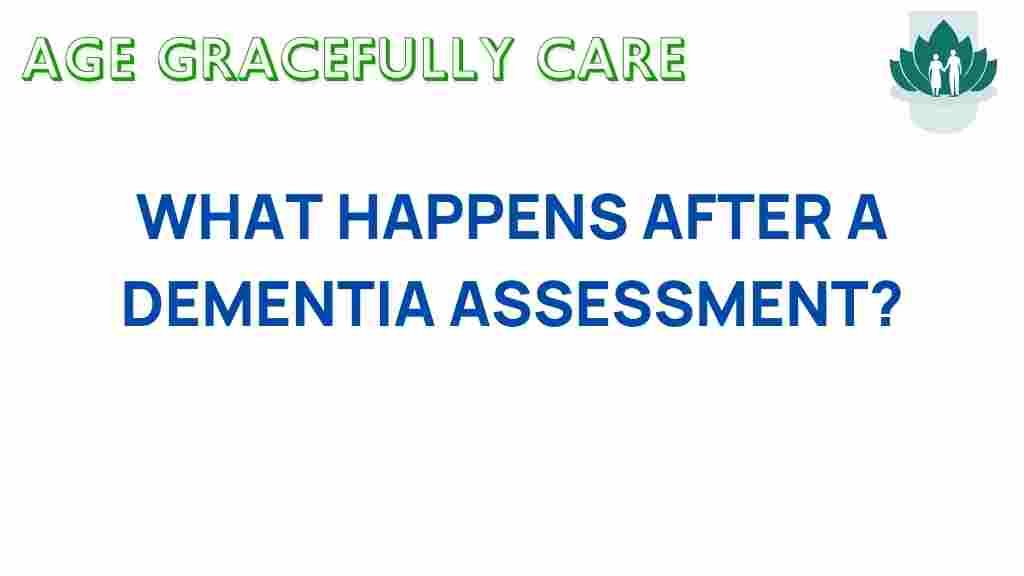Unveiling the Journey: What Happens After a Dementia Assessment?
Receiving a diagnosis of dementia can be a daunting experience, not only for the individual affected but also for their family and loved ones. Understanding what happens after a dementia assessment is crucial for navigating this challenging journey. In this article, we will explore the next steps following a dementia diagnosis, including the development of a care plan, available support services, treatment options, and the importance of family involvement in supporting cognitive health.
Understanding the Dementia Assessment
A dementia assessment typically involves a thorough evaluation by healthcare professionals to determine the presence of dementia and its type. This process may include:
- Medical history review
- Cognitive testing
- Physical examinations
- Brain imaging (e.g., MRI, CT scans)
Once the assessment is complete, the healthcare provider will discuss the findings and provide a diagnosis. This is a pivotal moment, marking the beginning of a new phase in the individual’s life and that of their family.
Next Steps After a Dementia Diagnosis
After the dementia assessment and diagnosis, it is essential to follow a structured approach to ensure the best possible outcomes for the individual diagnosed. Here are the key steps to consider:
1. Developing a Care Plan
A personalized care plan is crucial in managing dementia effectively. This plan should be tailored to the individual’s specific needs, preferences, and the progression of the disease. It typically includes:
- Goals for cognitive health and daily living activities
- Medication management
- Strategies for communication
- Emergency contacts and crisis planning
Consulting with healthcare providers, including neurologists and geriatricians, can help in formulating an effective care plan that addresses both immediate and long-term needs.
2. Exploring Support Services
Support services play a vital role in the journey following a dementia diagnosis. These services can provide assistance not only to the individual but also to their families. Important support services include:
- Caregiver support groups: These offer emotional support and practical advice.
- Adult day care services: These programs provide social and recreational activities in a safe environment.
- Home health services: In-home care can assist with daily activities and medical needs.
- Respite care: Temporary relief for primary caregivers.
Finding local support services can significantly ease the burden on families. For more resources, consider visiting the Alzheimer’s Association.
3. Treatment Options
While there is currently no cure for dementia, several treatment options can help manage symptoms and improve quality of life. These may include:
- Medications: Certain drugs may help manage cognitive symptoms.
- Therapies: Cognitive stimulation therapy and occupational therapy can enhance cognitive function and daily living skills.
- Healthy lifestyle changes: Encouraging physical activity and a balanced diet can support overall cognitive health.
It is essential to discuss all available treatment options with healthcare professionals to determine the best course of action.
4. Involving Family and Caregivers
Family involvement is critical in the management of dementia. Engaging family members can provide emotional support and practical assistance. Here are ways to foster family involvement:
- Educate family members: Understanding dementia helps families cope better.
- Encourage participation: Involve family members in care planning and decision-making.
- Promote open communication: Regular family meetings can help discuss challenges and strategies.
By fostering a supportive family environment, individuals with dementia can feel more secure and understood.
Additional Considerations for Cognitive Health
Maintaining cognitive health is essential for individuals diagnosed with dementia. Here are some strategies to support cognitive function:
- Engagement in social activities: Staying socially active can help slow cognitive decline.
- Regular physical exercise: Physical activity is linked to better brain health.
- Mental exercises: Activities like puzzles, reading, or learning new skills can stimulate the brain.
Exploring these options can empower individuals to take an active role in their cognitive health journey.
Troubleshooting Common Challenges
As families navigate the complex landscape of dementia care, they may encounter various challenges. Here are some common issues and solutions:
1. Communication Difficulties
People with dementia may struggle with communication. To improve interactions:
- Use simple, clear language.
- Be patient and give them time to respond.
- Use non-verbal cues, such as gestures or facial expressions.
2. Behavioral Changes
Behavioral symptoms such as agitation or aggression can be distressing. Strategies to manage these behaviors include:
- Identifying triggers and avoiding them.
- Creating a calm and structured environment.
- Engaging in soothing activities, such as music or art therapy.
3. Caregiver Stress
Caregiving can be overwhelming, leading to burnout. To mitigate stress:
- Take regular breaks and prioritize self-care.
- Seek support from friends, family, or professional services.
- Join caregiver support groups for shared experiences and advice.
Conclusion
The journey following a dementia assessment can be challenging, but with the right approach, it can also be a time of meaningful connection and support. By developing a comprehensive care plan, exploring support services, considering treatment options, and involving family members, individuals with dementia can navigate their diagnosis with dignity and care.
Remember, every step taken towards understanding and supporting those affected by dementia is a step towards enhancing their quality of life. Embrace the journey, stay informed, and seek help when needed as you navigate this complex path.
For more information on dementia care and support, consider visiting the National Institute on Aging.
This article is in the category Care and created by AgeGracefullyCare Team
